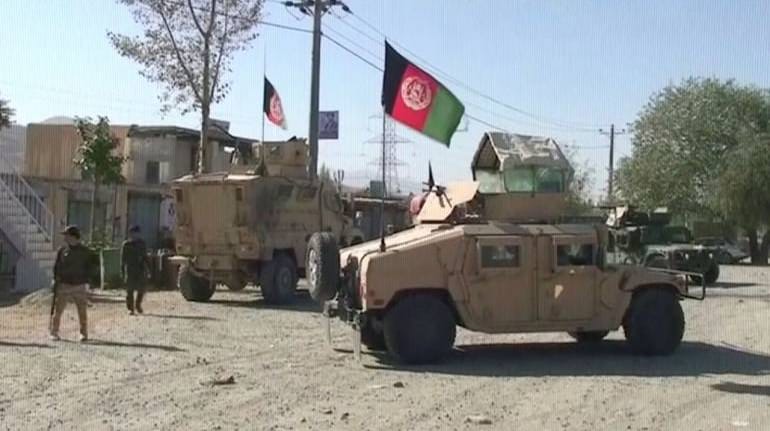



The fast-changing developments in Afghanistan are pushing the Indian foreign policy establishment in an unexpected direction. In recent years, the Indian foreign policy discussions have been dominated by its increasing closeness to the West, particularly the United States; Indo-Pacific narrative, Quad, etc.
Now suddenly, the Eurasian space has become important. After Tehran and Moscow, the External Affairs Minister is now travelling to Central Asia. He will attend the Shanghai Cooperation Organization (SCO) Council of Foreign Ministers meeting in Tajikistan and a high-level conference on Central-South Asia connectivity in Uzbekistan.
Afghanistan will certainly be one of the key discussion points in both the meetings. With the US and NATO exit from Afghanistan, the usefulness of SCO membership is being realised.
It is not easy to predict Afghanistan’s future. However, it is becoming clearer that the Taliban will have a significant role in the next phase Afghanistan’s transformation. The Taliban has strong links with Pakistan. The Pakistan-China nexus is well known. The China-Russia bonhomie is a matured now. Together their influence in the Central Asian republics is significant. Due to the US’ obsession with Iran, Tehran will have to work mainly with Russia and China.
Every important country from the region has stakes in the stability of Afghanistan. At the same time, no country, including India, seems to be interested in seriously involving itself militarily in Afghanistan. So, they are still hoping for some kind of settlement rather than another round of civil war.
After the US-Taliban agreement, it was expected that that there will be a peaceful settlement between different Afghan groups. Now that has not happened so far.
Instead, the violence has increased and the Taliban have actually captured a large part of Afghan territory. In a recent interview, Zabihullah Mujahid, a spokesman for the Taliban, claimed that at least 125 districts (out of 387) are in their control.
Apart from major towns, cities and highways, large parts of the country were never effectively controlled either by the government in Kabul or the Taliban since 2005. But certainly, in the last two months, the Taliban has made significant gains. Unlike in the past, the Afghan security forces have not been able to re-take most of the captured districts.
Most western countries and analysts have been arguing that there is no military solution to the Afghan problem. But it seems that the Taliban is actually pushing for a military solution. Their strategy seems to be that after controlling a significant part of country, they would like to push settlement at their terms.
Unlike the 1990s, the Taliban 2.0 also want acceptability from the international community. They may also need resources to run Afghanistan. Today, they are not isolated. They are represented through their political office in Doha. Their delegations have been travelling to Russia, China, Iran, Uzbekistan, Turkmenistan, etc. They have established contacts with almost all major players.
Except India, almost every country is openly talking to them. In the changed circumstances, New Delhi might have established some limited contacts with them. Officially, however both the Indian government and the Taliban have denied this.
Concerning the Taliban, India has been living under the ‘Kandahar syndrome’ since 1999 when IC 814 was hijacked to the southern Afghan city of Kandahar. From ‘no good or bad Taliban’, the Indian policy makers moved to ‘Afghan led, Afghan owned and Afghan controlled’ peace process in the last few years. Now, the External Affairs Minister has repeatedly asserted stability “inside and around” Afghanistan. The Taliban has now advised India to be impartial in Afghan conflict.
India’s major worry is the Taliban’s links with Rawalpindi (ISI). Their relative success in Afghanistan will have direct and indirect influence on Pakistan’s proxy war in Kashmir.
All regional countries including Central Asians, Russia, China, and Iran also have similar worries. Pakistan has its own domestic Tehrik-i-Taliban. Since all sit together in the SCO, it could be a useful forum to work out a future shape of the Afghan government. Afghanistan is also an observer in the SCO. The Afghan government is represented in its contact group on Afghanistan.
In the meanwhile, the Indian footprint in Afghanistan is shrinking. It’s consulates in Jalalabad, Herat and Kandahar are now working without Indian officials.
Hardly any country trusts the Taliban. New Delhi and the Taliban do not trust each other. But to protect its interests, India has to work with regional countries to find an acceptable solution. With the US exit, Afghanistan’s neighbours through their linkages with different Afghan groups could use the SCO platform to find a negotiated settlement. Being an important SCO member, India can also help Afghanistan stabilise itself through a regional consensus.
Discover the latest Business News, Sensex, and Nifty updates. Obtain Personal Finance insights, tax queries, and expert opinions on Moneycontrol or download the Moneycontrol App to stay updated!
Find the best of Al News in one place, specially curated for you every weekend.
Stay on top of the latest tech trends and biggest startup news.